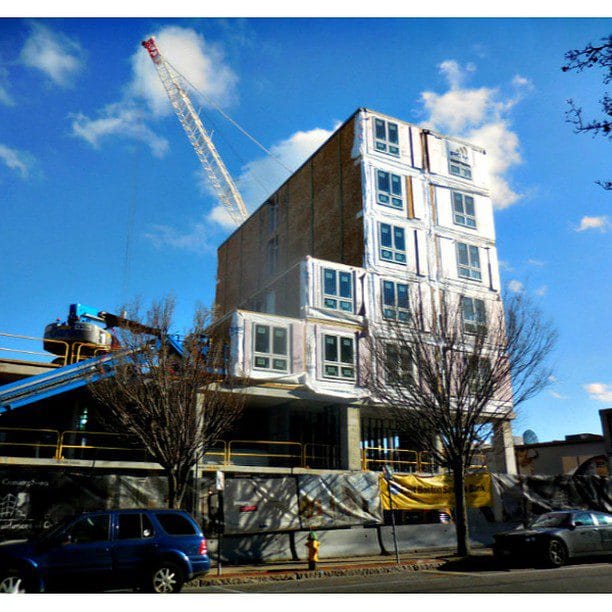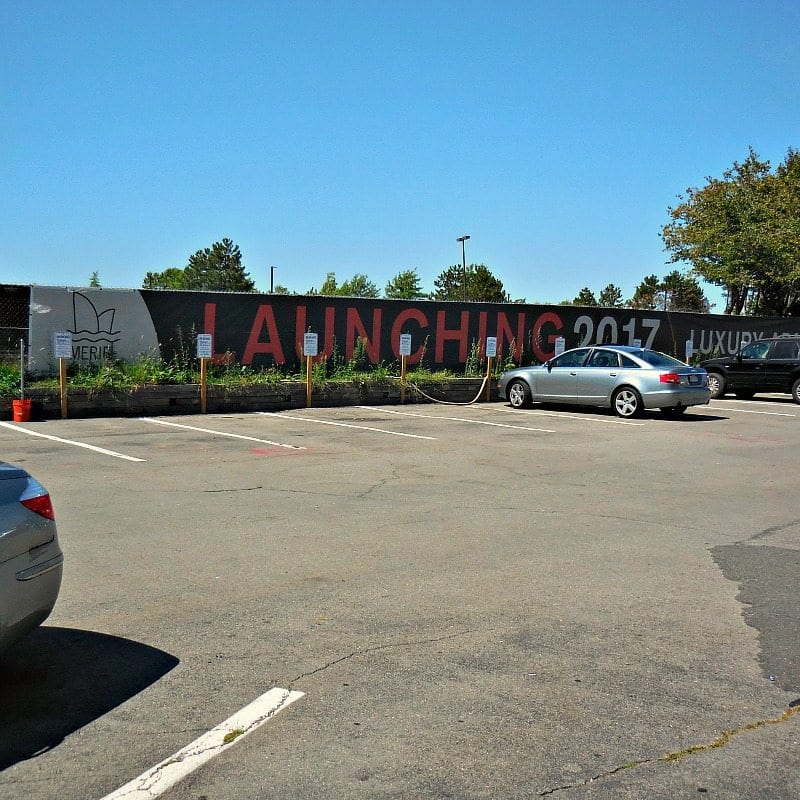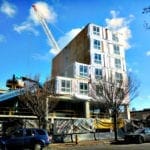Rent soars for apartments near MBTA rail stations
– News covered by Quincy Quarry News with commentary added.
As should come as no great surprise to anyone, rents are soaring for apartments that are near MBTA rail stations and something which a recent study by Renthop confirmed.
What is not as easy to fathom is why rents are soaring for apartments near most major MBTA stations what with many still working remotely and MBTA ridership continuing to run below pre-pandemic levels.
At best, Quincy Quarry’s financial and other affairs desk opines that perhaps relatively recent college graduates facing considerable amounts of student debt are assuming that a car is not in their future as well as that other individuals could be hunkering down in advance of growing expectations that we are looking to be heading into an economic slowdown given soaring interest rates.
While the former theory is a reasonable assumption, the latter takes a bit of explanation.
In brief, when times are good, many opt to shift to relying on private vehicles rather than suffer public transit and, by extension, when times are not so great, many have to tough it out on public transit.
At the same time, on a bright note locally, rental rates for apartments near the Quincy Adams Red Line station are down by 4.8% from last year’s levels and thus is one of only three MBTA station neighborhoods to see rents decrease.
Similarly, rent rates near the Wollaton MBTA station are only up by 5.3% from last year and thus less than the rate of inflation over the same time time frame.
And for a mixed bag is that rents near the other two of Quincy’s four Red Line stations rents are falling far short of seeing the average 19.5% rental increase across the MBTA service areas reviewed by this study.
In turn, such would suggest that perhaps Quincy Mayor Thomas P. Koch’s enabling of favored real estate developers to throw up thousands of new apartments near local MBTA stations is looking to perhaps be hitting the fan.
In extension, while rental rates near Quincy’s other two MBTA stations are up, new and higher-end for Quincy apartment buildings near the North Quincy MBTA station have torqued the data in this MBTA station neighborhood, rent increases near the Quincy Center MBTA station have not experienced the near-20% average rent pop for all neighborhoods with MBTA stations within the Greater Boston area.
As Quincy has long been the canary in a coal mine when the Greater Boston area experiences a real estate downturn, count on Quincy Quarry News to monitor the local real estate market and then report as might be appropriate.
Source: Rents skyrocket near MBTA stops, new report finds
Visit Quincy Quarry’s Instagram Page















Indeed.
Also — taxes continue to soar for houses and condos, and this is also reflected in the rental rates for apartments, regardless of where in the Q you might live. If you live in Quincy, you’re being throttled for every cent they can get out of you. Unless, of course, you’re a favored developer — they’re the main beneficiaries of all the tax-thievery the city is imposing on the rest of us.
Bingo
All these high end condos & apartments are given the residential tax rate instead of the commercial tax rate by yours truly, Mayor Tom Kook. Thanks for nothing you imbecile!
Pooter,
It is even worse than you think. For reasons too complicated to address herein, increases to the recent slug of high end apartment complexes’ local property tax assessments tend to lag behind the rate of increases imposed upon homeowners.
Rent near MBTA stations is higher because living near the train is of immense value for many people. Not everybody disdains public transit – depending on where you’re going, it has many advantages to driving.
No argument, there are people who are willing to pay higher rents for convenient access to MBTA stations. Love the T, however, not so much.
At the same time, such does not play out well for the far many more who have to rely on public transit but can’t keep pace with the skyrocketing rents for T convenient housing.
Plus, for an interrelated problem, the City of Quincy has done pretty much bupkis to see that new local transit-oriented developments include affordable units even though Quincy is failing to merely but keep pace with state-set affordable housing guidelines.